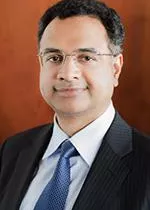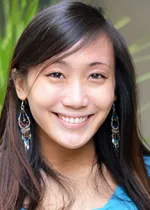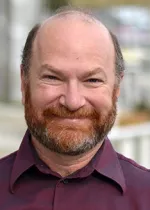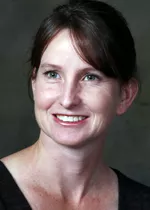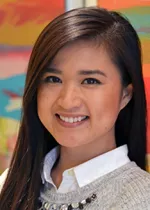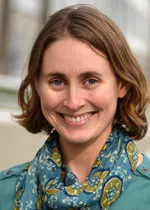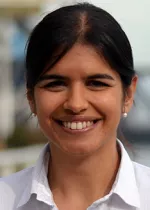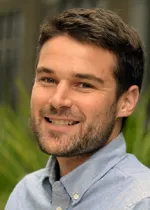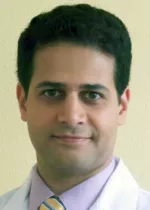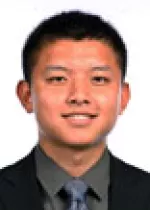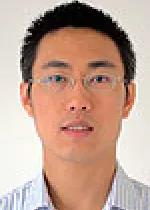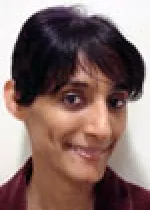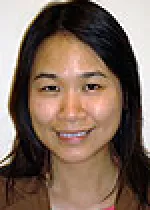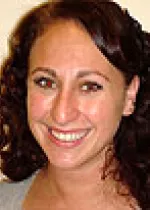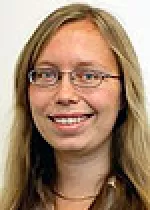
Neural Connectivity Lab
Our research focuses on advancing the understanding of human brain structure and function through cutting-edge neuroimaging and data analysis. We combine advanced MRI techniques, clinical research studies, and computational tools to investigate healthy brain development as well as neurological disorders.
Research
The following highlights key areas of our work
- DTI, HARDI, and Structural Data for 66 Controls Subjects. See cited article for details: Chang YS, Owen JP, Pojman NJ, Thieu T, Bukshpun P, Wakahiro MLJ, Berman JI, Robert TPL, Nagarajan SS, Sherr EH, Mukherjee P (2015) White matter changes of neurite density and fiber orientation dispersion during human brain maturation. PLoS ONE.
- NIH-funded cross-sectional and longitudinal clinical research studies of traumatic brain injury using diffusion tensor imaging (DTI), functional MRI (fMRI), 3D MR spectroscopic imaging, and magnetoencephalography (MEG), with correlation to candidate susceptibility genes and to neurocognitive function (attention, memory, information processing speed, and executive function).
- Application of multivariate statistical methods, including principal component analysis (PCA), independent component analysis (ICA), and machine learning techniques, to fMRI and DTI for mapping cortical and white matter networks in the normal human brain and in human brain malformations, such as dysgenesis of the corpus callosum.
- Development of improved DTI and high angular resolution diffusion imaging (HARDI) methodology for in vivo human brain white matter fiber tractography, with application to graph theoretic analysis of cortical connectivity.
Study Participation Details
UCSF is one of three study sites currently sponsored by the GE aiming to develop next generation, noninvasive imaging technologies to improve diagnosis and treatment for patients with mild traumatic brain injury (mTBI), also known as a concussion.
- People ages 15-50 who have had concussion within the past 10 days (Ideally in the past 72 hours)
- No other brain injuries/concussions in the past year
- No permanent metal or MRI-incompatible material in body
- 3 to 4 two-hour visits at UCSF Mission Bay
- Each visit consists of 1-hr MRI and 1-hr neurological assessment
- Potentially make an important contribution to concussion/mTBI research and future clinical care for others.
- Participants may be compensated for completing all portions of the study
Contact our study staff and enroll ASAP. Time after injury is important for this study.
- Ph: (415) 483-0983
- Email: [email protected]
Publications
- Li YO, Yang FG, Nguyen CT, Cooper SR, Lahue SC, Venugopal S, Mukherjee P. Independent component analysis of DTI reveals multivariate microstructural correlations of white matter in the human brain. Hum Brain Mapp. 2011 May 12. View in: PubMed
- Duhaime AC, Gean AD, Haacke EM, Hicks R, Wintermark M, Mukherjee P, Brody D, Latour L, Riedy G. Common data elements in radiologic imaging of traumatic brain injury. Arch Phys Med Rehabil. 2010 Nov; 91(11):1661-6. View in: PubMed
- Haacke EM, Duhaime AC, Gean AD, Riedy G, Wintermark M, Mukherjee P, Brody DL, DeGraba T, Duncan TD, Elovic E, Hurley R, Latour L, Smirniotopoulos JG, Smith DH. Common data elements in radiologic imaging of traumatic brain injury. J Magn Reson Imaging. 2010 Sep; 32(3):516-43. View in: PubMed
- Wahl M, Strominger ZA, Wakahiro M, Jeremy RJ, Mukherjee P, Sherr EH. Diffusion tensor imaging of Aicardi syndrome. Pediatr Neurol. 2010 Aug; 43(2):87-91. View in: PubMed
- Raj A, Hess C, Mukherjee P. Spatial HARDI: improved visualization of complex white matter architecture with Bayesian spatial regularization. Neuroimage. 2011 Jan 1; 54(1):396-409. View in: PubMed
- Niogi SN, Mukherjee P. Diffusion tensor imaging of mild traumatic brain injury. J Head Trauma Rehabil. 2010 Jul-Aug; 25(4):241-55. View in: PubMed
- Maruta J, Suh M, Niogi SN, Mukherjee P, Ghajar J. Visual tracking synchronization as a metric for concussion screening. J Head Trauma Rehabil. 2010 Jul-Aug; 25(4):293-305. View in: PubMed
- Wahl M, Li YO, Ng J, Lahue SC, Cooper SR, Sherr EH, Mukherjee P. Microstructural correlations of white matter tracts in the human brain. Neuroimage. 2010 Jun; 51(2):531-41. View in: PubMed
- Niogi S, Mukherjee P, Ghajar J, McCandliss BD. Individual Differences in Distinct Components of Attention are Linked to Anatomical Variations in Distinct White Matter Tracts. Front Neuroanat. 2010; 4:2. View in: PubMed
- Wahl M, Barkovich AJ, Mukherjee P. Diffusion imaging and tractography of congenital brain malformations. Pediatr Radiol. 2010 Jan; 40(1):59-67. View in: PubMed
- Wahl M, Mukherjee P. Diffusion imaging of congenital brain malformations. Semin Pediatr Neurol. 2009 Sep; 16(3):111-9. View in: PubMed
- Reeder SB, Mukherjee P. Clinical applications of MR diffusion and perfusion imaging: Preface. Magn Reson Imaging Clin N Am. 2009 May; 17(2):xi-xii. View in: PubMed
- Metcalf M, Xu D, Okuda DT, Carvajal L, Srinivasan R, Kelley DA, Mukherjee P, Nelson SJ, Vigneron DB, Pelletier D. High-resolution phased-array MRI of the human brain at 7 tesla: initial experience in multiple sclerosis patients. J Neuroimaging. 2010 Apr; 20(2):141-7. View in: PubMed
- Van Boven RW, Harrington GS, Hackney DB, Ebel A, Gauger G, Bremner JD, D'Esposito M, Detre JA, Haacke EM, Jack CR, Jagust WJ, Le Bihan D, Mathis CA, Mueller S, Mukherjee P, Schuff N, Chen A, Weiner MW. Advances in neuroimaging of traumatic brain injury and posttraumatic stress disorder. J Rehabil Res Dev. 2009; 46(6):717-57. View in: PubMed
- Niogi SN, Mukherjee P, Ghajar J, Johnson CE, Kolster R, Lee H, Suh M, Zimmerman RD, Manley GT, McCandliss BD. Structural dissociation of attentional control and memory in adults with and without mild traumatic brain injury. Brain. 2008 Dec; 131(Pt 12):3209-21. View in: PubMed
- Lee H, Wintermark M, Gean AD, Ghajar J, Manley GT, Mukherjee P. Focal lesions in acute mild traumatic brain injury and neurocognitive outcome: CT versus 3T MRI. J Neurotrauma. 2008 Sep; 25(9):1049-56. View in: PubMed
- von Morze C, Purcell DD, Banerjee S, Xu D, Mukherjee P, Kelley DA, Majumdar S, Vigneron DB. High-resolution intracranial MRA at 7T using autocalibrating parallel imaging: initial experience in vascular disease patients. Magn Reson Imaging. 2008 Dec; 26(10):1329-33. View in: PubMed
- Xu D, Cunningham CH, Chen AP, Li Y, Kelley DA, Mukherjee P, Pauly JM, Nelson SJ, Vigneron DB. Phased array 3D MR spectroscopic imaging of the brain at 7 T. Magn Reson Imaging. 2008 Nov; 26(9):1201-6. View in: PubMed
- Mukherjee P, Chung SW, Berman JI, Hess CP, Henry RG. Diffusion tensor MR imaging and fiber tractography: technical considerations. AJNR Am J Neuroradiol. 2008 May; 29(5):843-52. View in: PubMed
- Mukherjee P, Berman JI, Chung SW, Hess CP, Henry RG. Diffusion tensor MR imaging and fiber tractography: theoretic underpinnings. AJNR Am J Neuroradiol. 2008 Apr; 29(4):632-41. View in: PubMed
- Rodriguez-Carranza CE, Mukherjee P, Vigneron D, Barkovich J, Studholme C. A framework for in vivo quantification of regional brain folding in premature neonates. Neuroimage. 2008 Jun; 41(2):462-78. View in: PubMed
- Wang ZJ, Vigneron DB, Miller SP, Mukherjee P, Charlton NN, Lu Y, Barkovich AJ. Brain metabolite levels assessed by lactate-edited MR spectroscopy in premature neonates with and without pentobarbital sedation. AJNR Am J Neuroradiol. 2008 Apr; 29(4):798-801. View in: PubMed
- Hammond KE, Lupo JM, Xu D, Metcalf M, Kelley DA, Pelletier D, Chang SM, Mukherjee P, Vigneron DB, Nelson SJ. Development of a robust method for generating 7.0 T multichannel phase images of the brain with application to normal volunteers and patients with neurological diseases. Neuroimage. 2008 Feb 15; 39(4):1682-92. View in: PubMed
- Hess CP, Mukherjee P. Visualizing white matter pathways in the living human brain: diffusion tensor imaging and beyond. Neuroimaging Clin N Am. 2007 Nov; 17(4):407-26, vii. View in: PubMed
- von Morze C, Xu D, Purcell DD, Hess CP, Mukherjee P, Saloner D, Kelley DA, Vigneron DB. Intracranial time-of-flight MR angiography at 7T with comparison to 3T. J Magn Reson Imaging. 2007 Oct; 26(4):900-4. View in: PubMed
- Berman JI, Chung S, Mukherjee P, Hess CP, Han ET, Henry RG. Probabilistic streamline q-ball tractography using the residual bootstrap. Neuroimage. 2008 Jan 1; 39(1):215-22. View in: PubMed
- Li J, Shivakumar S, Wakahiro M, Mukherjee P, Barkovich AJ, Slavotinek A, Sherr EH. Agenesis of the corpus callosum, optic coloboma, intractable seizures, craniofacial and skeletal dysmorphisms: an autosomal recessive disorder similar to Temtamy syndrome. Am J Med Genet A. 2007 Aug 15; 143A(16):1900-5. View in: PubMed
- Mukherjee P, Hess CP, Xu D, Han ET, Kelley DA, Vigneron DB. Development and initial evaluation of 7-T q-ball imaging of the human brain. Magn Reson Imaging. 2008 Feb; 26(2):171-80. View in: PubMed
- Paul LK, Brown WS, Adolphs R, Tyszka JM, Richards LJ, Mukherjee P, Sherr EH. Agenesis of the corpus callosum: genetic, developmental and functional aspects of connectivity. Nat Rev Neurosci. 2007 Apr; 8(4):287-99. View in: PubMed
- Niogi SN, Mukherjee P, McCandliss BD. Diffusion tensor imaging segmentation of white matter structures using a Reproducible Objective Quantification Scheme (ROQS). Neuroimage. 2007 Mar; 35(1):166-74. View in: PubMed
- Chen JS, Mukherjee P, Dillon WP, Wintermark M. Restricted diffusion in bilateral optic nerves and retinas as an indicator of venous ischemia caused by cavernous sinus thrombophlebitis. AJNR Am J Neuroradiol. 2006 Oct; 27(9):1815-6. View in: PubMed
- Hess CP, Mukherjee P, Han ET, Xu D, Vigneron DB. Q-ball reconstruction of multimodal fiber orientations using the spherical harmonic basis. Magn Reson Med. 2006 Jul; 56(1):104-17. View in: PubMed
- Partridge SC, Vigneron DB, Charlton NN, Berman JI, Henry RG, Mukherjee P, McQuillen PS, Karl TR, Barkovich AJ, Miller SP. Pyramidal tract maturation after brain injury in newborns with heart disease. Ann Neurol. 2006 Apr; 59(4):640-51. View in: PubMed
- Barkovich AJ, Miller SP, Bartha A, Newton N, Hamrick SE, Mukherjee P, Glenn OA, Xu D, Partridge JC, Ferriero DM, Vigneron DB. MR imaging, MR spectroscopy, and diffusion tensor imaging of sequential studies in neonates with encephalopathy. AJNR Am J Neuroradiol. 2006 Mar; 27(3):533-47. View in: PubMed
- Mukherjee P, McKinstry RC. Diffusion tensor imaging and tractography of human brain development. Neuroimaging Clin N Am. 2006 Feb; 16(1):19-43, vii. View in: PubMed
- Rodriguez-Carranza C, Mukherjee P, Vigneron D, Barkovich J, Studholme C. A system for measuring regional surface folding of the neonatal brain from MRI. Med Image Comput Comput Assist Interv. 2006; 9(Pt 2):201-8. View in: PubMed
- Miller SP, Ferriero DM, Leonard C, Piecuch R, Glidden DV, Partridge JC, Perez M, Mukherjee P, Vigneron DB, Barkovich AJ. Early brain injury in premature newborns detected with magnetic resonance imaging is associated with adverse early neurodevelopmental outcome. J Pediatr. 2005 Nov; 147(5):609-16. View in: PubMed
- Berman JI, Mukherjee P, Partridge SC, Miller SP, Ferriero DM, Barkovich AJ, Vigneron DB, Henry RG. Quantitative diffusion tensor MRI fiber tractography of sensorimotor white matter development in premature infants. Neuroimage. 2005 Oct 1; 27(4):862-71. View in: PubMed
- Partridge SC, Mukherjee P, Berman JI, Henry RG, Miller SP, Lu Y, Glenn OA, Ferriero DM, Barkovich AJ, Vigneron DB. Tractography-based quantitation of diffusion tensor imaging parameters in white matter tracts of preterm newborns. J Magn Reson Imaging. 2005 Oct; 22(4):467-74. View in: PubMed
- Deipolyi AR, Mukherjee P, Gill K, Henry RG, Partridge SC, Veeraraghavan S, Jin H, Lu Y, Miller SP, Ferriero DM, Vigneron DB, Barkovich AJ. Comparing microstructural and macrostructural development of the cerebral cortex in premature newborns: diffusion tensor imaging versus cortical gyration. Neuroimage. 2005 Sep; 27(3):579-86. View in: PubMed
- Mukherjee P. Diffusion tensor imaging and fiber tractography in acute stroke. Neuroimaging Clin N Am. 2005 Aug; 15(3):655-65, xii. View in: PubMed
- Le TH, Mukherjee P, Henry RG, Berman JI, Ware M, Manley GT. Diffusion tensor imaging with three-dimensional fiber tractography of traumatic axonal shearing injury: an imaging correlate for the posterior callosal "disconnection" syndrome: case report. Neurosurgery. 2005; 56(1):189. View in: PubMed
- Ojemann JG, McKinstry RC, Mukherjee P, Park TS, Burton H. Hand somatosensory cortex activity following selective dorsal rhizotomy: report of three cases with fMRI. Childs Nerv Syst. 2005 Feb; 21(2):115-21. View in: PubMed
- Maas LC, Mukherjee P, Carballido-Gamio J, Veeraraghavan S, Miller SP, Partridge SC, Henry RG, Barkovich AJ, Vigneron DB. Early laminar organization of the human cerebrum demonstrated with diffusion tensor imaging in extremely premature infants. Neuroimage. 2004 Jul; 22(3):1134-40. View in: PubMed
- Partridge SC, Mukherjee P, Henry RG, Miller SP, Berman JI, Jin H, Lu Y, Glenn OA, Ferriero DM, Barkovich AJ, Vigneron DB. Diffusion tensor imaging: serial quantitation of white matter tract maturity in premature newborns. Neuroimage. 2004 Jul; 22(3):1302-14. View in: PubMed
- Xu D, Henry RG, Mukherjee P, Carvajal L, Miller SP, Barkovich AJ, Vigneron DB. Single-shot fast spin-echo diffusion tensor imaging of the brain and spine with head and phased array coils at 1.5 T and 3.0 T. Magn Reson Imaging. 2004 Jul; 22(6):751-9. View in: PubMed
- Berman JI, Berger MS, Mukherjee P, Henry RG. Diffusion-tensor imaging-guided tracking of fibers of the pyramidal tract combined with intraoperative cortical stimulation mapping in patients with gliomas. J Neurosurg. 2004 Jul; 101(1):66-72. View in: PubMed
- Wintermark M, Fischbein NJ, Mukherjee P, Yuh EL, Dillon WP. Unilateral putaminal CT, MR, and diffusion abnormalities secondary to nonketotic hyperglycemia in the setting of acute neurologic symptoms mimicking stroke. AJNR Am J Neuroradiol. 2004 Jun-Jul; 25(6):975-6. View in: PubMed
- Nakamura K, Mukherjee P, Swanson RA. Vitamin B12 deficiency. Arch Neurol. 2004 Jun; 61(6):960. View in: PubMed
- Henry RG, Berman JI, Nagarajan SS, Mukherjee P, Berger MS. Subcortical pathways serving cortical language sites: initial experience with diffusion tensor imaging fiber tracking combined with intraoperative language mapping. Neuroimage. 2004 Feb; 21(2):616-22. View in: PubMed
- Mazumdar A, Mukherjee P, Miller JH, Malde H, McKinstry RC. Diffusion-weighted imaging of acute corticospinal tract injury preceding Wallerian degeneration in the maturing human brain. AJNR Am J Neuroradiol. 2003 Jun-Jul; 24(6):1057-66. View in: PubMed
- Mukherjee P, Kang HC, Videen TO, McKinstry RC, Powers WJ, Derdeyn CP. Measurement of cerebral blood flow in chronic carotid occlusive disease: comparison of dynamic susceptibility contrast perfusion MR imaging with positron emission tomography. AJNR Am J Neuroradiol. 2003 May; 24(5):862-71. View in: PubMed
- Miller JH, McKinstry RC, Philip JV, Mukherjee P, Neil JJ. Diffusion-tensor MR imaging of normal brain maturation: a guide to structural development and myelination. AJR Am J Roentgenol. 2003 Mar; 180(3):851-9. View in: PubMed
- Neil J, Miller J, Mukherjee P, Hüppi PS. Diffusion tensor imaging of normal and injured developing human brain - a technical review. NMR Biomed. 2002 Nov-Dec; 15(7-8):543-52. View in: PubMed
- Mukherjee P, Miller JH, Shimony JS, Philip JV, Nehra D, Snyder AZ, Conturo TE, Neil JJ, McKinstry RC. Diffusion-tensor MR imaging of gray and white matter development during normal human brain maturation. AJNR Am J Neuroradiol. 2002 Oct; 23(9):1445-56. View in: PubMed
- Mukherjee P, Miller JH, Shimony JS, Conturo TE, Lee BC, Almli CR, McKinstry RC. Normal brain maturation during childhood: developmental trends characterized with diffusion-tensor MR imaging. Radiology. 2001 Nov; 221(2):349-58. View in: PubMed
- Gauvain KM, McKinstry RC, Mukherjee P, Perry A, Neil JJ, Kaufman BA, Hayashi RJ. Evaluating pediatric brain tumor cellularity with diffusion-tensor imaging. AJR Am J Roentgenol. 2001 Aug; 177(2):449-54. View in: PubMed
- Mukherjee P, McKinstry RC. Reversible posterior leukoencephalopathy syndrome: evaluation with diffusion-tensor MR imaging. Radiology. 2001 Jun; 219(3):756-65. View in: PubMed
- Mukherjee P, Bahn MM, McKinstry RC, Shimony JS, Cull TS, Akbudak E, Snyder AZ, Conturo TE. Differences between gray matter and white matter water diffusion in stroke: diffusion-tensor MR imaging in 12 patients. Radiology. 2000 Apr; 215(1):211-20. View in: PubMed
- Lin W, Mukherjee P, An H, Yu Y, Wang Y, Vo K, Lee B, Kido D, Haacke EM. Improving high-resolution MR bold venographic imaging using a T1 reducing contrast agent. J Magn Reson Imaging. 1999 Aug; 10(2):118-23. View in: PubMed
- Lee BC, Vo KD, Kido DK, Mukherjee P, Reichenbach J, Lin W, Yoon MS, Haacke M. MR high-resolution blood oxygenation level-dependent venography of occult (low-flow) vascular lesions. AJNR Am J Neuroradiol. 1999 Aug; 20(7):1239-42. View in: PubMed
- Mukherjee P, Kaplan E. The maintained discharge of neurons in the cat lateral geniculate nucleus: spectral analysis and computational modeling. Vis Neurosci. 1998 May-Jun; 15(3):529-39. View in: PubMed
- Levine MW, Cleland BG, Mukherjee P, Kaplan E. Tailoring of variability in the lateral geniculate nucleus of the cat. Biol Cybern. 1996 Sep; 75(3):219-27. View in: PubMed
- Mukherjee P, Kaplan E. Dynamics of neurons in the cat lateral geniculate nucleus: in vivo electrophysiology and computational modeling. J Neurophysiol. 1995 Sep; 74(3):1222-43. View in: PubMed
Lab Members
Alumni
Neural Connectivity Lab Group
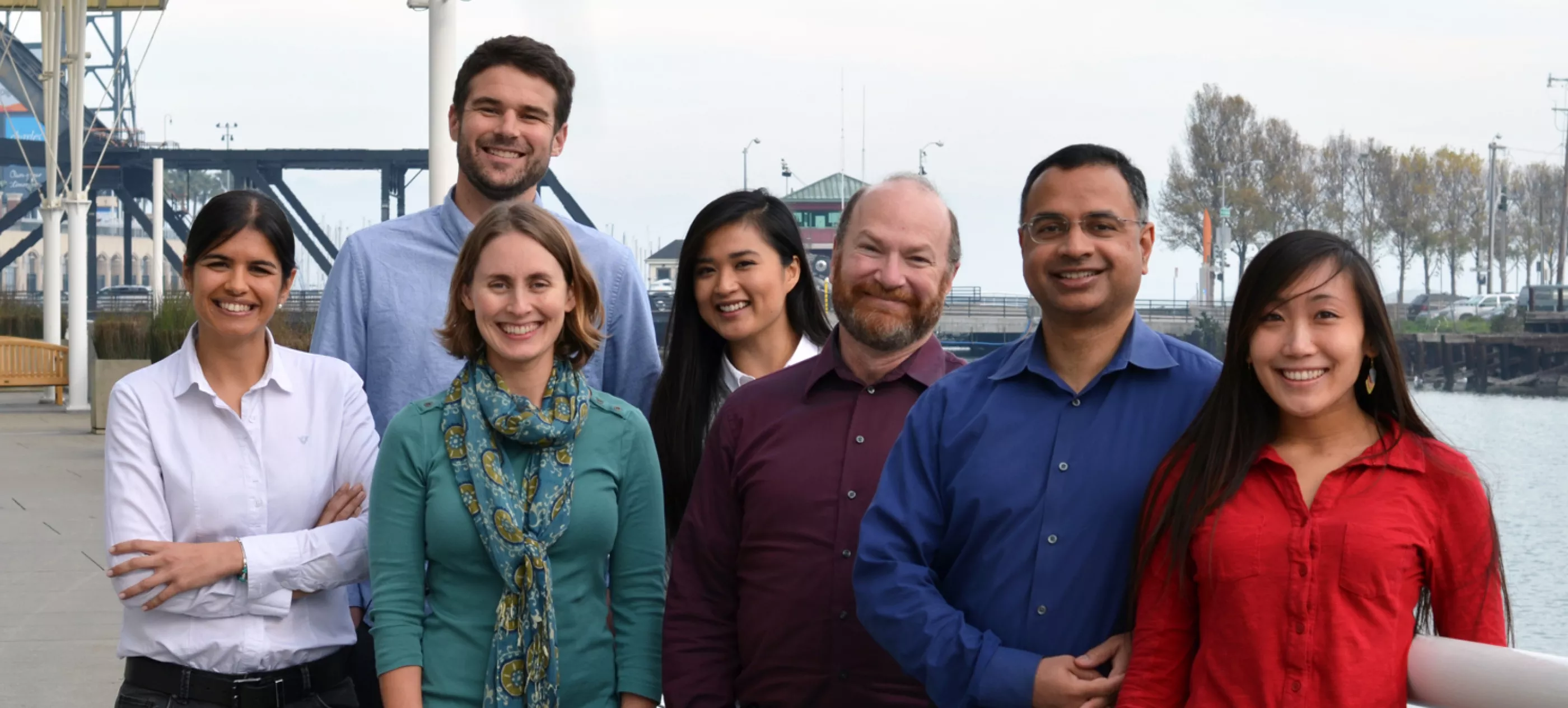
Contact Us
Neural Connectivity Lab Contact
UCSF China Basin
185 Berry St. Suite 350
San Francisco, CA 94158
Ph: (415) 353-9456
Fax: (415) 353-8593
